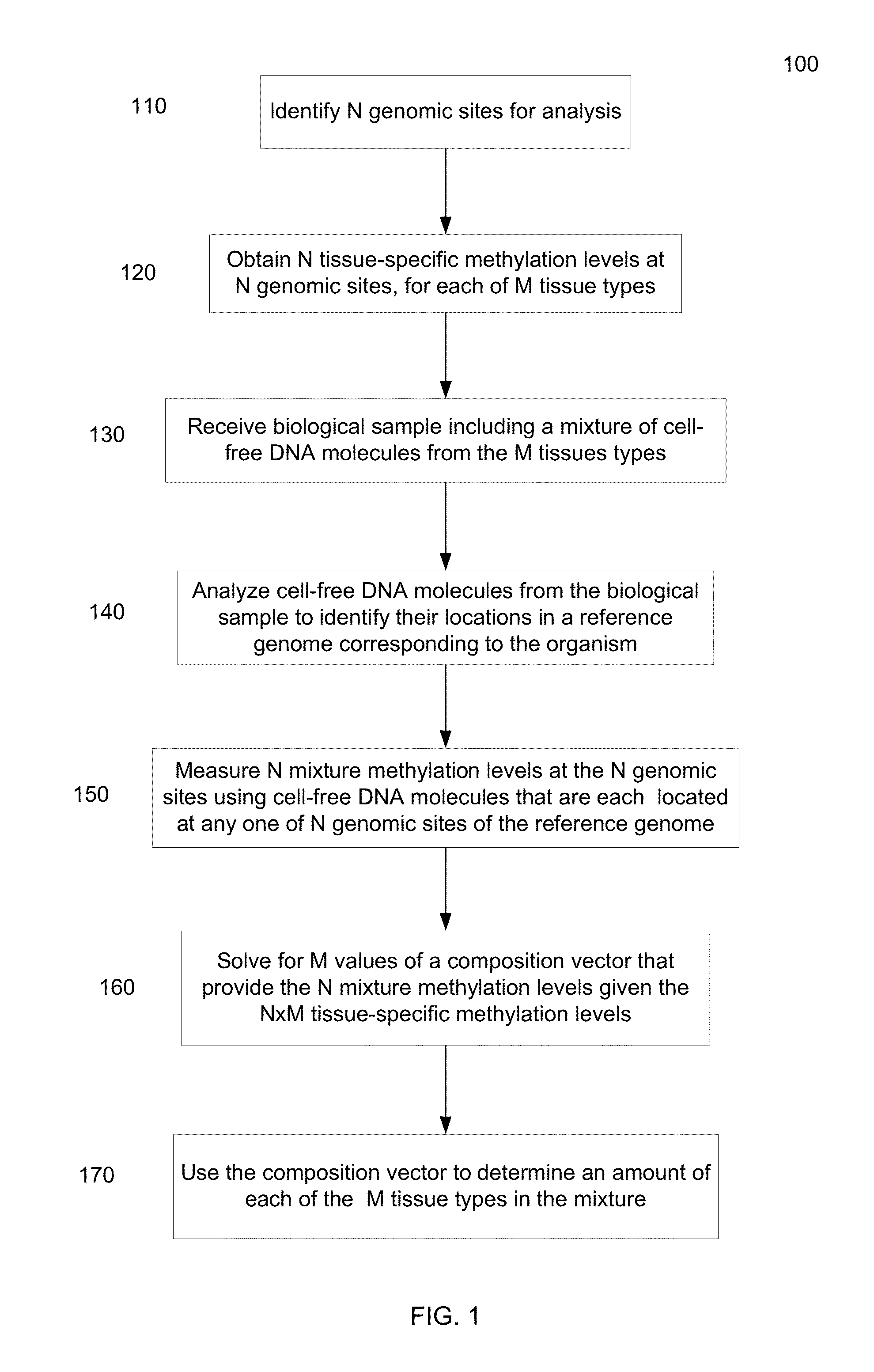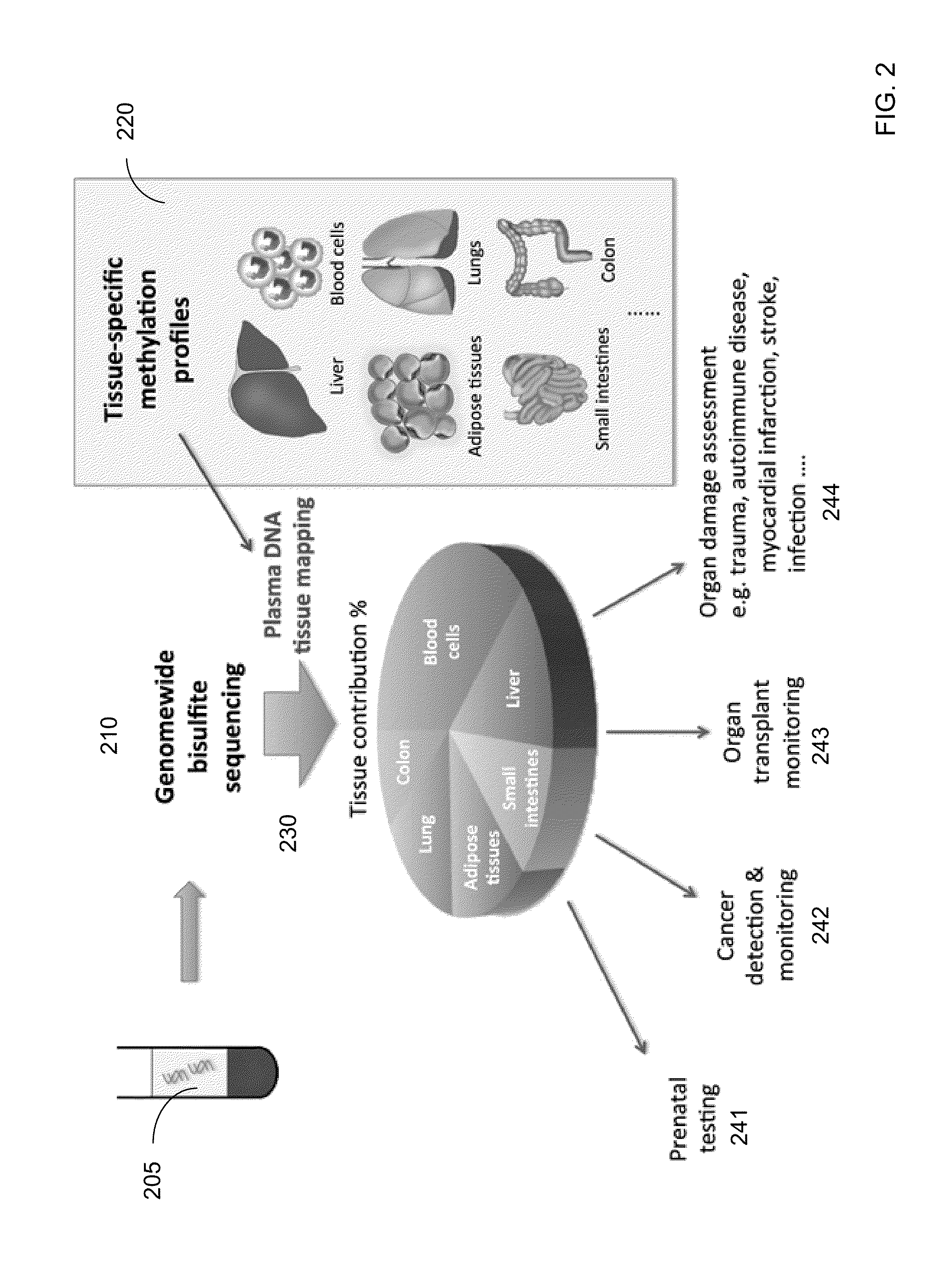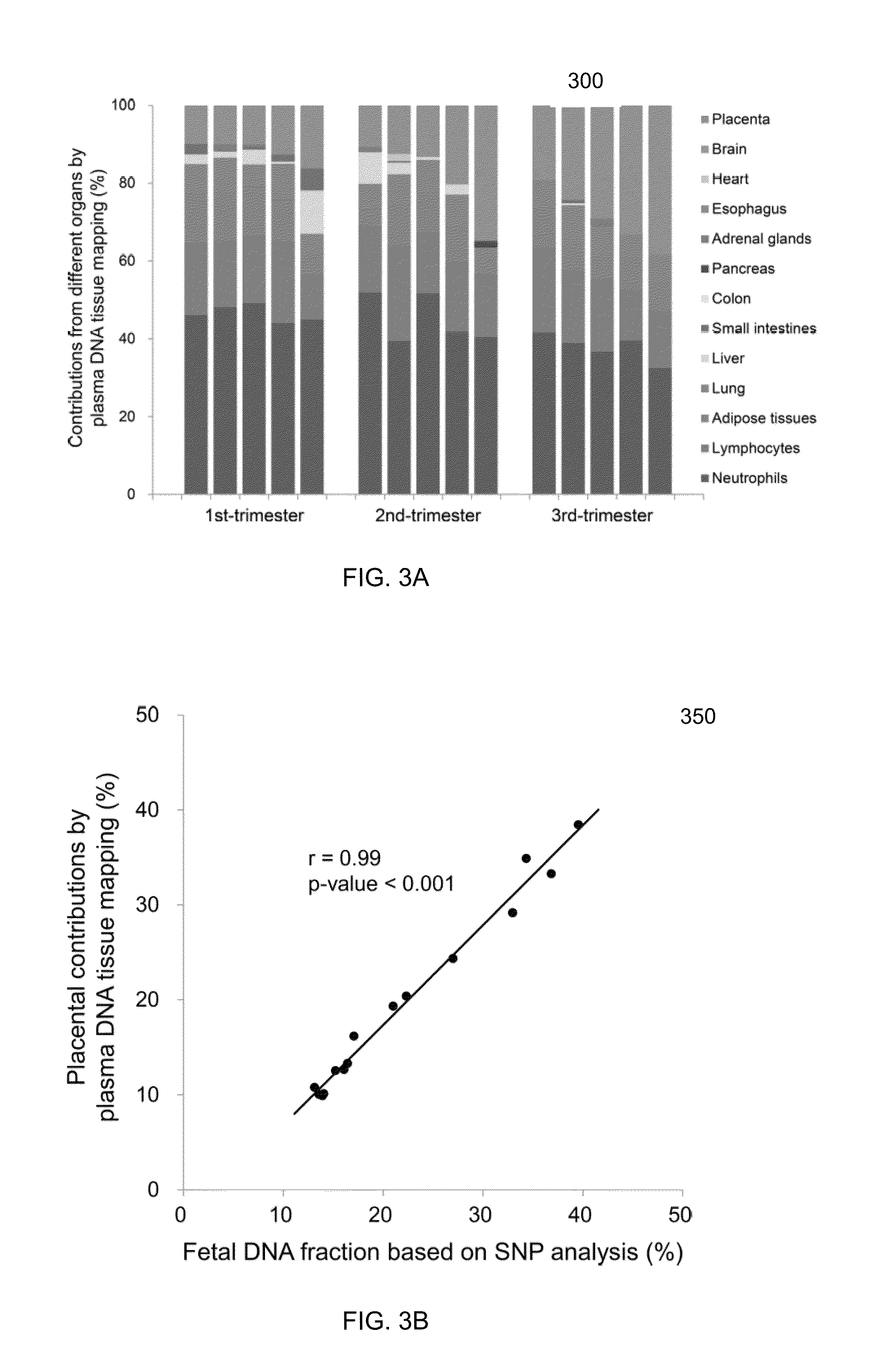Methylation pattern analysis of tissues in a DNA mixture
a methylation pattern and tissue technology, applied in the field of analysis of cell-free dna in plasma, can solve the problems of incomplete testing of accuracy of such techniques, insufficient identification of deficiencies in accuracy, and inability to determine other organs which are from the recipient, so as to increase the accuracy of determining contributions
- Summary
- Abstract
- Description
- Claims
- Application Information
AI Technical Summary
Benefits of technology
Problems solved by technology
Method used
Image
Examples
Embodiment Construction
[0065]Embodiments of the present invention can determine percentages of cell-free DNA in plasma (or other DNA mixture) from various tissue types using known methylation levels at certain genomic sites for the specific tissue types. For example, methylation levels at the genomic sites can be measured for a liver sample, and these tissue-specific methylation levels can be used to determine how much cell-free DNA in the mixture is from the liver. Methylation levels can also be measured for tissue types that provide substantial contributions to the DNA mixture, so that a predominance (e.g., more than 90%, 95%, or 99%) of the cell-free DNA mixture can be accounted for. Such other samples can include, but not limited to, some or all of the following: lung, colon, small intestines, pancreas, adrenal glands, esophagus, adipose tissues, heart, and brain.
[0066]A deconvolution process can be used to determine fractional contributions (e.g., percentage) for each of the tissue types for which ti...
PUM
| Property | Measurement | Unit |
|---|---|---|
| threshold | aaaaa | aaaaa |
| threshold value | aaaaa | aaaaa |
| dimensions | aaaaa | aaaaa |
Abstract
Description
Claims
Application Information
 Login to View More
Login to View More - R&D
- Intellectual Property
- Life Sciences
- Materials
- Tech Scout
- Unparalleled Data Quality
- Higher Quality Content
- 60% Fewer Hallucinations
Browse by: Latest US Patents, China's latest patents, Technical Efficacy Thesaurus, Application Domain, Technology Topic, Popular Technical Reports.
© 2025 PatSnap. All rights reserved.Legal|Privacy policy|Modern Slavery Act Transparency Statement|Sitemap|About US| Contact US: help@patsnap.com



